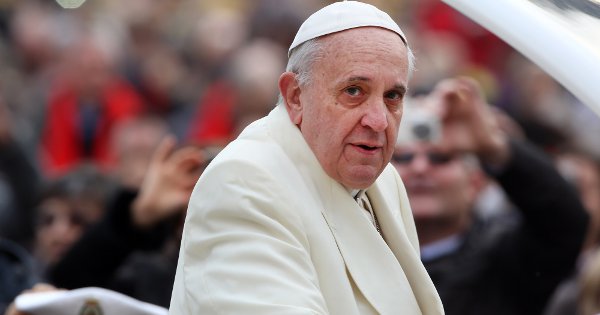“WHO am I to judge?”
With those five simple words, Pope Francis sent a big message.
He was speaking after his predecessor shocked the world by becoming the first Pope to resign in 600 years last February.
Pope Francis’ profession of modesty came in July 2013, when reporters asked him about gay priests and the existence of a “gay lobby” in the Vatican.
“If someone is gay and he searches for the Lord and has good will, who am I to judge?” he responded. “You should not discriminate against or marginalise these people.”
Just eight years prior, Pope Benedict XVI labelled those with deep-rooted homosexual tendencies “disordered” and demanded that they be kept out of the priesthood.
But while Pope Francis reaffirmed the Roman Catholic Church’s position that homosexual acts are sinful, he refused to take the same view of homosexual people.
His remarks made headlines around the world because of their symbolic importance. But really they were just the latest in a series of similar gestures from a revolutionary Pope.
The 266th pontiff made a declaration of intent with his first act as leader of 1.2billion Catholics worldwide, taking the name of St Francis of Assisi, patron saint of the poor.
The Argentine then immediately took to breaking with tradition.
He shunned the lavish Papal residence in favour of a two-bedroom apartment, replaced the Papal Mercedes with a Ford Focus and ordered that bonuses due to Vatican officials upon his election be redirected to charity.
Since then the first Jesuit Pope has made further headlines by attacking the “tyranny” of capitalism and embracing disfigured people in St Peter’s Square.
Keeping up that trend, he marked his 77th birthday last year by sharing a meal with four homeless people.

The impact of Pope Francis’ radical tone has been noted by lay Catholics and world leaders alike.
He has certainly impressed Irish President Michael D Higgins, who made a point of praising the new Pope when he visited Britain last July.
The former Labour TD said he was “immensely pleased” by a homily given by Francis days previously in Lampedusa, the gateway to Europe for thousands of desperate African migrants that has also been a graveyard for hundreds.
In his remarks on the tiny Sicilian island during, Pope Francis slammed the “indifference” with which the plight of the migrants has been met.
He also asked God to forgive “those who with their decisions at the global level have created situations that lead to these tragedies”.
In response, President Higgins said: “The Lampedusa statement is very significant, not just in the concern that it expresses for migrants and migrants who are vulnerable – remember he was speaking about a particular set of circumstances and those who had tried to flee from poverty – but also his very clear statement on the connection between economy and society.”
The Irish head of state also alluded to a kinship he feels with Pope Francis, saying “the new Pope seems to have more or less views rather similar to my own”.
Critics point out that, despite his appealing style, the Pope has impacted little real change. Further, he has stated that the Church is not going to change its stance on women priests and gay marriage.
But optimists hope that real change could be on its way.
In November 2013, Pope Francis urged members of the Church to take part in an online survey on the Vatican’s teachings on contraception, divorce, homosexuality and unmarried people living together.
Their responses to the questionnaire will then be presented to this year’s Synod of Bishops before new Vatican guidance is issued to followers in 2015.
Hopes were also sparked by Pope Francis’ announcement last December that the Vatican will create a new task force to tackle sex abuse by priests.
But the response from those not inclined to take a positive view of the Church was a wake-up call.
It proved there is still a long way to go for the new Pope.
Labelling the move “toothless” and “meaningless”, a group representing abuse victims said it was “like offering a band aid to an advanced cancer patient”.
“No institution can police itself, especially not an ancient, secretive, rigid, all-male monarchy,” said David Clohessy, director of the Survivors Network of those Abused by Priests.
“Yet that’s what Catholic officials have long claimed and tried to do. This move is more of the same.”
Furthermore, in February the Vatican was criticised by the United Nations (UN) for failing to eradicate child abuse and allowing cover-ups.
Pope Francis then sparked controversy earlier this month when he responded to the comments in a rare interview with Italian newspaper Corriere della Sera, strongly defending the Roman Catholic Church's record on tackling sexual abuse by priests.
The Pope highlighted that the Church was the only institution to be condemned by the UN, despite having acted with transparency and responsibility.
Despite the recent challenges to the authenticity of Pope Francis’ reign, the symbolic importance of his gestures and compassionate attitude has been praised.
He was recognised by Time magazine, which named him 2013 ‘Person of the Year’ – “for pulling the papacy out of the palace and into the streets”.
Looking back on the first twelve months of his papacy, few deny Pope Francis has made a good start.

